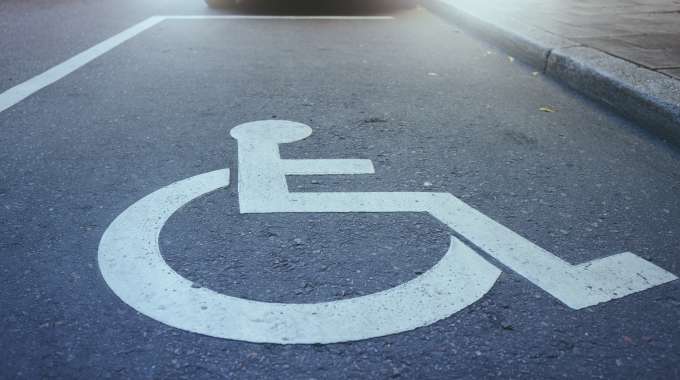However, since Canada has a progressive tax system, no matter where you live, as your income increases, so does your tax amount.
In Alberta, the tax brackets are pretty wide compared to the rest of the country. This means that more people will fall into the same provincial tax bracket as those who live in other provinces. Let’s take a look at these tax brackets and how they work.
Alberta 2026 Marginal Tax Rates
In Alberta, the marginal rate you pay is based on your taxable income. This is how much money you make in a year that is considered taxable. While most sources of income are considered to be taxable, there are a few exceptions when it comes to Alberta taxes.
Here are the tax bracket thresholds for your provincial tax bill in Alberta for 2026.
| Taxable Income | Marginal Tax Rated |
| On the first $61,200 | 8% |
| Over $61,200 up to $154,259 | 10% |
| Over $154,259 up to $185,111 | 12% |
| Over $185,111 up to $246,813 | 13% |
| Over $246,813 up to $370,220 | 14% |
| Over $370,220 | 15% |
How Alberta Rates Compare to the Rest Of Canada
As you can see, the margins for the income tax brackets in Alberta are pretty large. This means that a small pay raise won’t bump you into a different tax bracket like it would in other provinces.
Let’s take a look at what the other tax rates are throughout the country and see how they relate to Alberta.
| Provinces/Territories | Tax Rates |
| British Columbia | 5.06% on amounts from $0 – $50,363 7.7% on $50,363- $100,728 10.5% on $100,728 – $115,648 12.29% on $115,648- $140,430 14.7% on $140,430 – $190,405 16.8% on $190,405 – $265,545 20.5% on $265,545 and over |
| Saskatchewan | 10.5% first $54,532 12.5% over $54,532 up to $155,805 14.5% over $155,805 |
| Manitoba | 10.8% first $47,000 12.75% over $47,000 up to $100,000 17.4% over $100,000 |
| Newfoundland and Labrador | 8.7% first $44,678 14.5% over $44,678 up to $89,354 15.8% over $89,354 up to $159,528 17.8% over $159,528 up to $223,340 19.8% over $223,340 up to $285,319 20.8% over $285,319 up to $570,638 21.3% over $570,638 up to $1,141,275 21.8% over $1,141,275 |
| Nova Scotia | 8.79% on the first $30,995 14.95% over $30,995 up to $61,991 16.67% over $61,991 up to $97,417 17.5% over $97,417 up to $157,124 21% over $157,124 |
| Prince Edward Island | 9.5%% on the first $33,928 13.47% over $33,928 up to $65,820 16.60% over $65,820 up to $106,890 17.62% over $106,890 up to $142,250 19% over $142,250 |
| Ontario | 5.05% on the first $53,891 9.15% over $53,891 up to $107,785 11.16% over $107,785 up to $150,000 12.16% over $150,000 up to $220,000 13.16% over $220,000 |
| Quebec | 14% on the first $54,345 19% over $54,345 up to $108,680 24% over $54,345 up to $108,680 25.75% on amounts over $132,245 |
| New Brunswick | 9.4% on the first $52,333 14.0% over $52,333 up to $104,666 16% over $104,666 up to $193,861 19.5% on amounts over $193,861 |
| Northwest Territories | 5.9% on the first $53,003 8.6% over $53,003 up to $106,009 12.2% over $106,009 up to $172,346 14.05% on amounts over $172,346 |
| Yukon | 6.4% on the first $58,523 9% over $58,523 up to $117,045 10.9% over $117,045 up to $181,440 12.93% over $181,440 up to $258,482 12.80% over $258,482 up to $500,000 15% on amounts over $500,000 |
| Nunavut | 4% on the first $55,80 17% over $55,801 up to $111,60 29% over $111,602 up to $181,439 11.5% on amounts over $181,439 |
Compared to most other provinces, Alberta’s highest tax rate is lower. While some provinces are slightly lower, a good majority have the highest tax rate of 17% or more.
Federal Tax Rates 2026
When trying to determine what your tax rate is going to be, it’s not just your provincial taxes you need to consider. You also need to consider federal taxes determined by the federal government Canada Revenue Agency. Once you’ve determined that, then you can find your combined tax rate.
Here are the federal tax brackets for 2026. These can help you determine the total cost of your federal income taxes.
| Taxable Income Amounts | Federal Income Tax Rates |
| On the portion of the income from $0 – $58,523 | 14.0% |
| On the portion of income, that’s $58,523- $117,045 | 20.5% |
| On the portion of income that’s $117,045 – $181,440 | 26% |
| On the portion of income that’s $181,440 – $258,482 | 29% |
| On the portion of income, that’s $258,482 plus | 33% |
Combined 2026 Tax Rates in Alberta
Now that we have discussed both the federal and provincial tax rates for Alberta let’s take a look at the total personal income tax rates based on total annual taxable income.
| Taxable Income | Combined Tax Rate |
| On the portion of the income from $0 – $58,523 | 22% |
| On the portion of income, that’s $58,523 up to $61,200 | 28.5% |
| On the portion of income, that’s $61,200 up to $117,045 | 30.5% |
| On the portion of income that’s $117,045 up to $154,259 | 36% |
| On the portion of income that’s $154,259 up to $181,440 | 38% |
| On the portion of income that’s $181,440 up to $185,111 | 41.29% |
| On the portion of income that’s $185,111 up to $246,813 | 42.29% |
| On the portion of income that’s $246,813 up to $258,482 | 43.29% |
| On the portion of income that’s $258,482 up to $370,220 | 47% |
| On the portion of income that’s over $370,220 | 48% |
Taxable and Non-Taxable Income in Alberta
In Alberta, what income is considered taxable and non-taxable is comparable to the rest of the country. Income that’s considered non-taxable is:
- Gifts
- Inheritances
- Lottery winnings
- Most types of strike pay
- Most life insurance policy amounts
- GST payments
- Canada Child Benefits amounts
- Alberta Child and Family Benefit amounts
- Funds received if you were a victim of a motor vehicle accident or a crime
- Some government benefits
The most common form of income that’s considered taxable is earned income, also referred to as employment income. Then, there are other types of income that are taxable, such as investment income. The only difference with investment income is that certain types have different tax rates.
Another important thing to consider when figuring out your taxable income is your basic personal tax amount. For the 2025 tax year, the basic personal amount is $22,769. What exactly is this amount? Well, it’s the maximum amount you’re able to make without paying taxes. It’s essentially considered a non-refundable tax credit that anyone in Canada can claim. If you make less than that amount, then you’ll receive all taxes you may have paid back when you file your Canadian income tax return.
Other Alberta Tax Rates
When it comes to taxes, we’ve gone over what you pay on taxable income. Let’s take a look at what you pay for certain types of investment income.
| Taxable Income | Capital Gains Tax Other Income | Canadian Eligible Dividends | Canadian Non-Eligible Dividends |
| On the portion of the income from $0 – $58,523 | 11.00% | -1.57% | 12.41% |
| On the portion of income, that’s $58,523 – $61,200 | 14.25% | 7.40% | 19.88% |
| On the portion of income, that’s $61,200 – $117,045 | 15.25% | 10.16% | 22.18% |
| On the portion of income, that’s $117,045 – $154,259 | 18.00% | 17.75% | 28.51% |
| On the portion of income that’s $154,259 – $181,440 | 19.00% | 20.51% | 30.81% |
| On the portion of income that’s $181,440 – $185,111 | 20.65% | 25.05% | 34.59% |
| On the portion of income that’s $185,111 – $246,813 | 21.15% | 26.43% | 35.74% |
| On the portion of income that’s $246,813 – $258,482 | 21.65% | 27.81% | 36.89% |
| On the portion of income that’s $258,482 – $370,220 | 23.50% | 32.93% | 41.16% |
| On the portion of income that’s above $370,220 | 24.00% | 34.31% | 42.31% |
How Much Tax You Pay Based on Salary
Even though we’ve mentioned what the different individual and combined federal and provincial income tax rates are, it can still be difficult to calculate what the income tax deducted from a yearly taxable income might be. Let’s take a look at some common salary amounts in Alberta and what the tax is on these amounts.
| Annual Taxable Income | Tax Amounts |
| $50,000 | $11,000 |
| $75,000 | $15,971.95 |
| $100,000 | $23,596.95 |
| $150,000 | $40,659.48 |
2026 Corporate Tax Rates in Alberta
In Alberta, the corporate tax rate is different from other provinces. It actually has one of the lowest corporate tax rates in Canada at just 8%. This is significantly lower than other provinces, including BC, which has a tax rate of 12%. This makes the federal rate for Alberta 29% and BC 33%.
How Alberta Income Tax Rates Differ from Other Provinces
When it comes to your personal income tax return, the taxes on your gross income to produce your net income arent’ that different than other provinces in Canada. The tax revenue they earn is similar as well as the amount charged on taxable capital gains. That said, the place where you notice the tax cut in Alberta is on sales tax.
Unlike other Canadian provinces, Alberta only charges GST on purchases made and services. This lower tax percentage reduces fuel tax as well as the overall purchase price of goods. For taxpayers in Alberta, there are other purchase exemptions that aren’t subject to any tax at all. This puts more dollars in the pockets of Albertans.
That said, business income for your Alberta income taxes is based on the taxes charged, and can cause a reduction in business taxes compared to other provinces. On enhanced federal personal returns for the calendar year, there won’t be much of a difference. The cash amount for taxes will be similar. Those who receive investment income will be charged taxes based on the actual dividends received.
Final Thoughts
Taxes can be a tricky thing to figure out, especially if you’re self-employed. As a self-employed person, it’s difficult to figure out how much you need to put away every year in order to have enough to pay when you file your income tax return. You’ll also have to factor in any expenses or deductions, such as medical expenses, that you can claim as well.
If you’re employed, these deductions are made for you unless you have more than one job and earn more money. Even with knowing which tax bracket you fall into, there are so many factors to consider when it comes to taxes. For this reason, many choose to consult a tax professional. They can help you determine what you can claim, what income is considered non-taxable, and how to save the most money on your taxes based on your personal finance situation.









